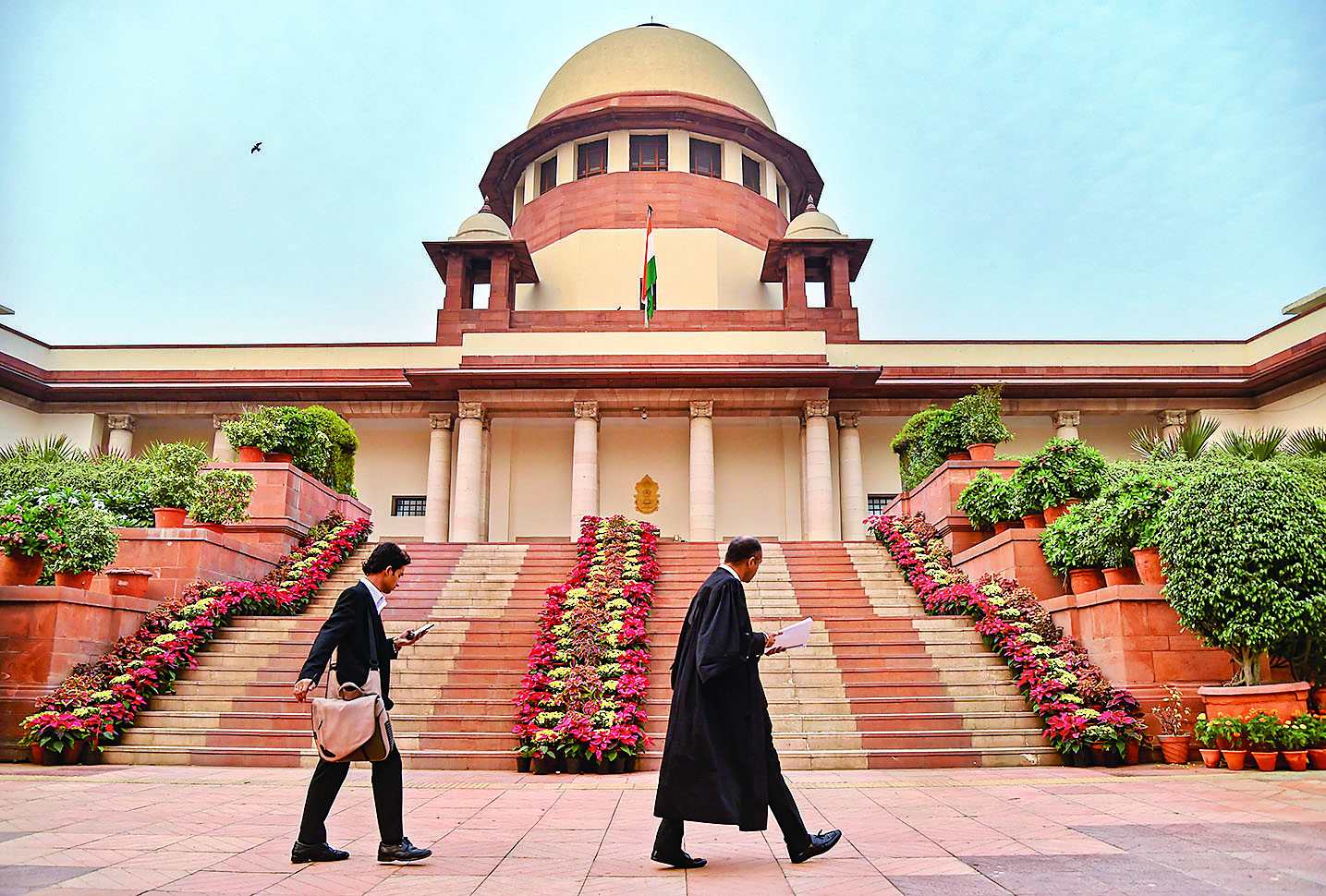ED required to furnish grounds of arrest to accused in writing, says Supreme Court

New Delhi: The Supreme Court has rejected the Centre’s plea for a review of its ruling that mandates the Enforcement Directorate (ED) to provide the reasons for arrest to the accused in writing, stating that there are no errors in the judgement that necessitate reconsideration.
The review petition was examined by Justices AS Bopanna and Sanjay Kumar in chambers. The bench stated: “We have meticulously reviewed the petitions and related documents. We find no error, apparent or otherwise, in the challenged order that would justify its reconsideration. The review petitions are therefore dismissed. Any pending application is also disposed of.”
On March 20, the bench also rejected the Centre’s request for an open court hearing.
The Centre had requested a review of the Supreme Court’s October 3 order, which overturned the orders of the Punjab and Haryana High Court and the arrest memos, and ordered the release of Basant Bansal and Pankaj Bansal, directors of the Gurugram-based real estate group M3M, in a money laundering case.
The Supreme Court had strongly criticised the ED, stating that it should not be “vindictive” and must act with utmost integrity and fairness. It emphasised that as a leading investigative agency tasked with combating the serious economic crime of money laundering in the country, every action of the ED should be “transparent, above board, and adhere to the highest standards of fair play.”
The Supreme Court had stated that the accused’s failure to answer the ED’s questions would not be enough for the investigating officer to conclude that they were liable to be arrested. It said: “Simply not cooperating with a witness in response to the summons issued under Section 50 of the (PMLA) Act of 2002 would not be sufficient to make him/her liable to be arrested under Section 19.”
Justice Kumar, who wrote the verdict for the bench, also criticised the manner in which the Bansals were arrested and said the sequence of events “speaks volumes and reflects poorly, if not negatively, on the ED’s modus operandi.”
Referring to the provision of the Prevention of Money Laundering Act (PMLA) related to informing the arrested person about the reasons for arrest, the Supreme Court had said: “We decree that it will be necessary, from now on, to provide a copy of such written reasons for arrest to the arrested person as a standard procedure and without exception.”
The Supreme Court had stated that if any sensitive information is included in the reasons for arrest, the ED can always redact such sensitive sections in the document and provide the edited copy of the reasons for arrest to the arrested person to maintain the integrity of the investigation.
Basant and Pankaj Bansal were arrested by the ED in connection with a money laundering investigation linked to an alleged bribery case.
The money laundering case in which Basant and Pankaj Bansal were arrested was related to an FIR filed by the Haryana Police’s anti-corruption bureau in April of the previous year against Sudhir Parmar, a former special judge for ED and CBI cases who was stationed in Panchkula, his nephew, and a third M3M group director, Roop Kumar Bansal.
In its FIR, the ED had claimed that it had received reliable information about Parmar showing “favouritism” to the Bansals and real estate firm IREO owner
Lalit Goyal in the ED and CBI cases pending against them in his court.
Parmar was suspended by the Punjab and Haryana High Court after a case was registered against him by the anti-corruption bureau.



